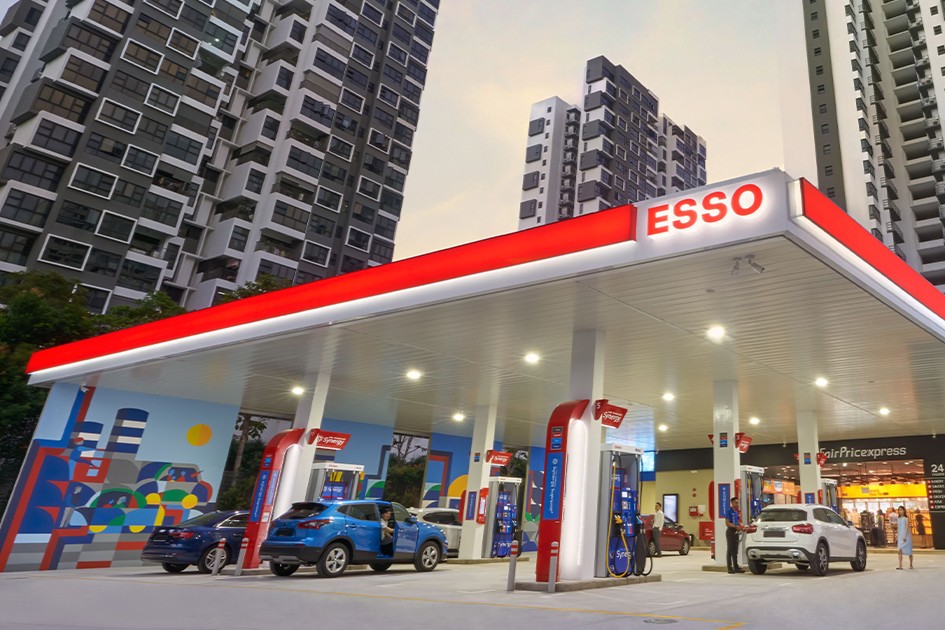PT Chandra Asri Pacific Tbk (Chandra Asri Group), a leading energy, chemicals, and infrastructure provider in Southeast Asia, has signed a Sale and Purchase Agreement to acquire ExxonMobil’s Esso-branded retail fuel station network in Singapore. The purchase will be made through a special-purpose vehicle under a wholly owned subsidiary of the Group.
This acquisition supports Chandra Asri’s long-term growth strategy to develop integrated energy infrastructure for the energy and mobility markets in Singapore and Southeast Asia.
President Director and CEO Erwin Ciputra said the move strengthens the company’s position as a regional leader in energy solutions, manufacturing, and infrastructure. The company will continue to use the Esso brand, buy fuel from ExxonMobil, and keep all existing customer loyalty points and cards.
Smooth Transition Expected for Singapore Customers
Almost 60 Esso petrol stations currently owned by ExxonMobil will be transferred to Chandra Asri’s ownership, pending regulatory approval. The transaction is expected to be completed by the end of 2025.
Chandra Asri confirmed that it will continue fuel purchases from ExxonMobil and operate the stations under the Esso name. Geraldine Chin, Chairman and Managing Director of ExxonMobil Asia Pacific, said, “We anticipate business as usual during the transition period and will work with Chandra Asri to provide a smooth experience for our customers.”
Energy consultant Tilak Doshi said the change in ownership means “very little” for consumers. “They’re not going to force customers to change into another brand ... so for customers, there’ll be minimal difference. It’ll be the same brand, the same coupons, their loyalty points will remain,” he explained.
Professor Lawrence Loh from the National University of Singapore’s Business School shared a similar view, describing it as a “seamless changeover” because “consumers do not need to know the underlying supplier.” A spokesperson from Nanyang Business School at Nanyang Technological University also stated there would be “no visible change.”
Fuel Prices Expected to Stay Competitive
Experts said it is difficult to determine if fuel prices will change after the acquisition. Professor Loh explained that ExxonMobil will shift to a “branded wholesale model,” supplying fuel to Chandra Asri, which will then own and operate the stations as an independent retailer.
Under the current model, ExxonMobil supplies and sells fuel directly to consumers. The new structure allows the supplier to share some risks with retailers, but profits will also be divided.
Professor Loh added that while Chandra Asri might lower prices due to a better cost structure, the wholesale model will balance that effect. He said overall prices will remain competitive due to strong pricing strategies among local fuel providers.
Mr. Doshi said Chandra Asri will face the same competitive pressures as ExxonMobil. “They will behave pretty much the same way because you don’t want to start a price war by cutting prices just because you bought over the stations,” he noted.
Aldric Chew, Head of Asia-Pacific Products Pricing at Argus Media, added that fuel prices are mainly affected by international oil prices, which can change due to global events such as sanctions between countries.
A Strategic Deal for Both Companies
Analysts said the transaction is a strategic decision for both ExxonMobil and Chandra Asri. A spokesperson from NTU’s Nanyang Business School said, “The move appears to be a strategic outsourcing of ExxonMobil’s last-mile retail distribution operations. The decision likely aims to streamline its balance sheet, finances, and operational management.”
The spokesperson also noted that the acquisition allows Chandra Asri to improve efficiency in retail operations and strengthen its position in downstream energy logistics. They added that following the Group’s earlier acquisition of Shell’s operations in Singapore, this deal could expand its regional presence and support its goal of diversifying into new energy businesses by 2050.
Energy consultant Tilak Doshi said the acquisition reflects different priorities for each company. He mentioned that ExxonMobil recently announced plans to cut 10 to 15 percent of its Singapore workforce by the end of 2027.
“For Exxon, they’ll say, hey, I’d rather gather my assets and go for high investment, relatively high risk but very high reward areas, compared to running a retail station in Singapore,” he said. “They are on the upswing in the region, whereas Exxon is rationalising its global operations. So together, those two are the major overarching points that make sense for this purchase by Chandra Asri to take place.”
PHOTO: ESSO SINGAPORE
This article was created with AI assistance. It is based on two original sources: the Chandra Asri press release published on 24 October 2025, and the CNA article titled "What the ExxonMobil–Chandra Asri Deal Means for Singapore Petrol Customers," also published on 24 October 2025.
Read More






 Saturday, 31-01-26
Saturday, 31-01-26







